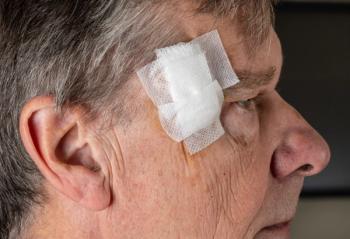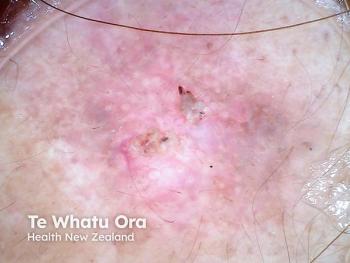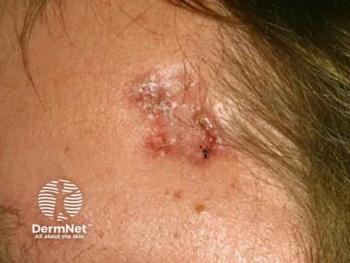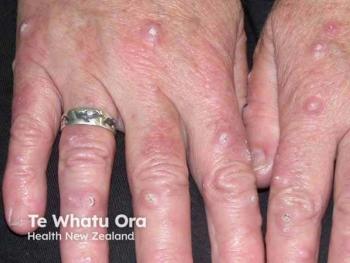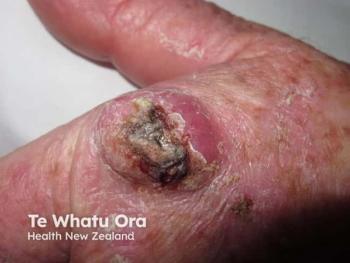
Therapeutic technology offers alternative to skin cancer surgery
Are your patients are looking for alternatives to surgery for non-melanoma skin cancer? Superficial radiation therapy (SRT) may be the answer.
Evolving technologies are not only helping dermatologists to detect and monitor skin cancer, but also treat it. Superficial radiation therapy (SRT) is an old approach that has evolved and resurged in recent years because of the rapidly aging population, according to Mark S. Nestor, M.D., Ph.D., a dermatologist and researcher in Aventura, Fla.
Dr. Nestor who uses the SRT-100 (Sensus Healthcare) says patients are looking for alternatives to surgery for non-melanoma skin cancer and insurance generally covers SRT.
“The cure rates using SRT for the treatment of basal cell and squamous cell carcinomas are around 95%. You don’t have to have surgery, so a lot of the complications with surgery-such as infections-are much lower. Because the science has advanced so much, some of the concerns with side effects from radiation treatments, are much less common with superficial radiation therapy,” Dr. Nestor says. “One of the best aspects of SRT is it’s performed in the office by Dermatologists. We assess the patients and follow them.”
Dr. Nestor, lead author on the recently published Consensus Guidelines on the Use of Superficial Radiation Therapy for Treating Nonmelanoma Skin Cancers and Keloids1, says dermatologists should use SRT primarily on elderly. Exceptions include younger patients with nonmelanoma skin cancers where they might not want surgery-on the central face, scalp and lower extremities.
Patients with multiple lesions might also be better candidates for SRT than for surgery. But patients with a small skin cancer that can be easily managed with either excision or destruction tend not to be SRT candidates, Dr. Nestor says. Â
Disclosures:
1. Nestor MS, Berman B, Goldberg D, et al. J Clin Aesthet Dermatol. 2019;12(2):12-18.
References:
Dr. Nestor is a consultant for Sensus Healthcare and advisor for Castle and Nevisense.
Newsletter
Like what you’re reading? Subscribe to Dermatology Times for weekly updates on therapies, innovations, and real-world practice tips.

